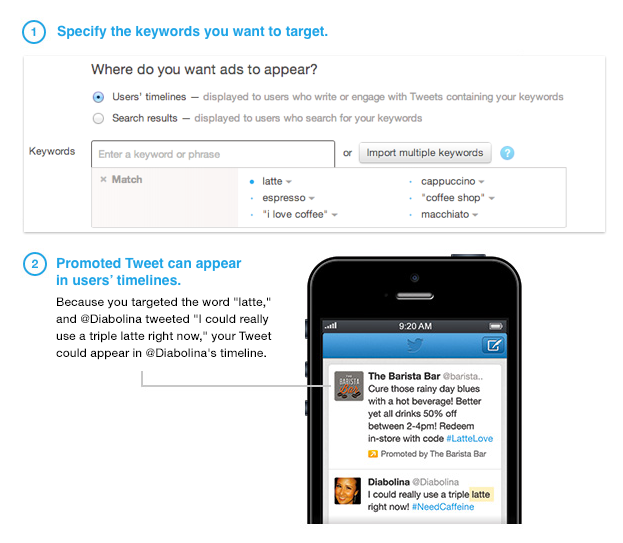Be Careful What You Tweet About Because It Will Now Determine The Ads You See
 UPDATE: A source at Twitter tells Consumerist that there are behind-the-scenes systems in place to try to prevent ads being served to users who have posted negative Tweets about a particular advertiser. Users can also report promoted Tweets that they feel are inappropriate or counter to their interests.
UPDATE: A source at Twitter tells Consumerist that there are behind-the-scenes systems in place to try to prevent ads being served to users who have posted negative Tweets about a particular advertiser. Users can also report promoted Tweets that they feel are inappropriate or counter to their interests.
–ORIGINAL POST—
Because Twitter is apparently operating under the notion that people only Tweet about the things they like, it has launched a new keyword-based advertising program that monitors the content your Twitter updates in order to provide you with highly specific, targeted ads that you will still completely ignore.
In a post explaining the update, Twitter’s Product Manager in charge of revenue writes:
For example: let’s say a user tweets about enjoying the latest album from their favorite band, and it so happens that band is due to play a concert at a local venue. That venue could now run a geotargeted campaign using keywords for that band with a Tweet containing a link to buy the tickets. That way, the user who tweeted about the new album may soon see that Promoted Tweet in their timeline letting them know tickets are for sale in their area.
Of course, this type of advertising is nothing new. Google has been pushing variations of keyword advertising in its search, Gmail and other offerings for years.
What remains to be seen is if Twitter’s program will be able to differentiate between people who are using keywords positively — “Product X is frickin’ awesome!” — from those who are calling down a rain of hellfire on a brand — “Product X is the worst and deserves to be whipped in public!”
Think of when something goes wrong — like it seems to for the floral-delivery business every year in mid-Feburary — the last thing an angry customer wants to be served up is an ad for the same company he’s creating a voodoo doll of.
On a good note, Twitter says the new ads will not result in users seeing any more ads than they were before.
Want more consumer news? Visit our parent organization, Consumer Reports, for the latest on scams, recalls, and other consumer issues.

